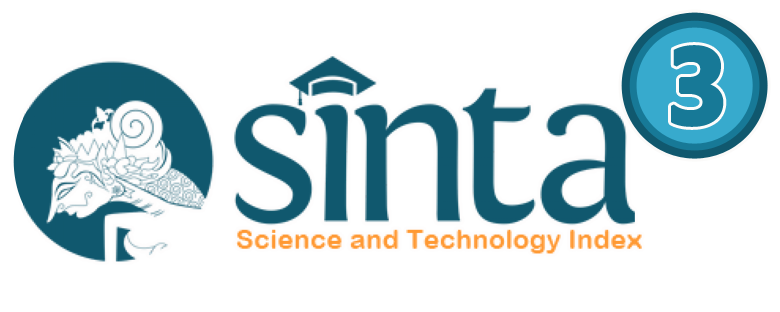Psychological Empowerment on Innovative Behavior with Transformational Leadership Style as Moderator Variable
DOI:
https://doi.org/10.18326/ijip.v4i2.34Keywords:
Psychological Empowerment, innovative behavior, Transformational Leadership StyleAbstract
State-Owned Enterprises (BUMN) is a company that has a role as an agent of value crator and agent of development. So what must be done is to improve the performance of BUMN, restructure BUMN and establish new BUMN. In achieving its goals, this role must be realized by carrying out a high innovation from every individual who is in a company. In terms of increasing Psy, an application of psychological empowerment is needed in the company and moderated by leaders who have a Transformational Leadership Style. This study uses a quantitative research method using a structural equation model (Structural Equation Model-Partial Least Square/SEM-PLS). Respondents in this study amounted to 35 employees with certain criteria. The results of the study show that there is an influence on Psychological Empowerment on Innovative Behavior, while the magnitude of the influence is 0.523. There is also the influence of Transformational Leadership Style on Innovative Behavior with a magnitude of 0.495. As a moderating variable, Transformational Leadership Style can also moderate the effect of Psychological Empowerment on Innovative Behavior with a score of 0.149.
References
A. F. Manurung, “Merevitalisasi Fungsi Inovasi BUMN RI,” Kompas.com, Jakarta, 2018. [Online]. Available: https://nasional.kompas.com/read/2018/01/17/21081111/merevitalisasi-fungsi-inovasi-bumn-ri
BPS, Statistik Keuangan Badan Usaha Milik Negara dan Badan Usaha Milik Daerah. Jakarta: Badan Pusat Statistik, 2020. [Online]. Available: https://www.bps.go.id/publication/download.html?nrbvfeve=MzVjNGI1MjM5NWZkN2NkMTYyMmYxOTMz&xzmn=aHR0cHM6Ly93d3cuYnBzLmdvLmlkL3B1YmxpY2F0aW9uLzIwMjEvMTIvMDcvMzVjNGI1MjM5NWZkN2NkMTYyMmYxOTMzL3N0YXRpc3Rpay1rZXVhbmdhbi1iYWRhbi11c2FoYS1taWxpay1uZWdhcmEtZGFuLWJh
D. Sasongko, “Peran BUMN dalam Pemulihan Ekonomi Nasional (PEN),” Kementerian Keuangan Republik Indonesia, 2020. [Online]. Available: https://www.djkn.kemenkeu.go.id/artikel/baca/13437/Peran-BUMN-dalam-Pemulihan-Ekonomi-Nasional-PEN.html
K. Hersey, Paul & Blanchard, Management of organizational behavior : utilizing human resources. Jakarta: Erlangga, 1994.
B. YILDIZ, S. UZUN, and S. Semih COSKUN, “Drivers of innovative behaviors: The moderator roles of perceived organizational support and psychological empowerment,” Int. J. Organ. Leadersh., vol. 6, no. 3, pp. 341–360, 2017, doi: 10.33844/ijol.2017.60255.
Y. Asfar, Bilal & Badir, “Journal of Chinese Human Resource Management,” J. Chinese Hum. Resour. Manag., vol. 5, no. 2, pp. 129–143, 2016.
J. P. J. De Jong and D. N. Den Hartog, “How leaders influence employees’ innovative behaviour,” Eur. J. Innov. Manag., vol. 10, no. 1, pp. 41–64, 2007, doi: 10.1108/14601060710720546.
I. Suryani, H. Halimatussakdiah, and N. Sofa, “Pengaruh Pemberdayaan Psikologi Terhadap Perilaku Inovatif,” Epigram, vol. 17, no. 1, pp. 19–26, 2020, doi: 10.32722/epi.v17i1.3312.
G. M. Spreitzer, “PSYCHOLOGICAL EMPOWERMENT IN THE WORKPLACE: DIMENSIONS, MEASUREMENT, AND VALIDATION,” Acad. Manag. J., vol. 38, pp. 1442–1465, 1995, doi: doi:10.2307/256865.
J. A. Conger and R. N. Kanungo, “The Empowerment Process: Integrating Theory and Practice,” Acad. Manag. Rev., vol. 13, no. 3, pp. 471–482, 1988, doi: 10.5465/amr.1988.4306983.
A. Hidayati, “Persepsi Tentang Pemberdayaan Psikologis Ditinjau Dari Tingkat Pendidikan Dan Masa Kerja,” p. 104, 2018.
F. Koesindratmono and B. G. Septarini, “Hubungan antara Masa Kerja dengan Pemberdayaan Psikologis pada Karyawan PT. Perkebunan Nusantara X (Persero),” Insa. Media Psikol., vol. 13, pp. 50–57, 2011, [Online]. Available: www.tcpdf.org
I. Getz and A. G. Robinson, “Innovate or die: Is that a fact?,” Creat. Innov. Manag., vol. 12, no. 3, pp. 130–136, 2003, doi: 10.1111/1467-8691.00276.
A. Carmeli, R. Meitar, and J. Weisberg, “Self-leadership skills and innovative behavior at work,” Int. J. Manpow., vol. 27, no. 1, pp. 75–90, 2006, doi: 10.1108/01437720610652853.
J. de Jong, Individual Innovation: The Connection Between Leadership and Employees’ Innovative Work Behavior. Amsterdam, 2007. [Online]. Available: http://ideas.repec.org/p/eim/papers/r200604.html
A. P. Kresnandito, “Pengaruh Persepsi Kepemimpinan Transformasional terhadap Perilaku Inovatif Penyiar Radio,” J. Psikol. Ind. dan Organ., vol. 1, no. 02, pp. 96–103, 2012.
S. Choi, Suk Bong, Kim, S.M., Ullah, Ebrahim, Kang, “Personnel review,” Emerald Insight, vol. 45, no. 2, pp. 152–169, 2016.
Martono, “Strategi Peningkatan Kinerja Program Studi Melalui Optimalisasi Peran Pimpinan,” J. Din. Manaj., vol. 4, no. 1, pp. 30–45, 2013.
V. J. García-Morales, M. M. Jiménez-Barrionuevo, and L. Gutiérrez-Gutiérrez, “Transformational leadership influence on organizational performance through organizational learning and innovation,” J. Bus. Res., vol. 65, no. 7, pp. 1040–1050, 2012, doi: 10.1016/j.jbusres.2011.03.005.
B. M. Bass, “Leadership: Good, better, best,” Organ. Dyn., vol. 13, no. 3, pp. 26–40, 1985, doi: 10.1016/0090-2616(85)90028-2.
R. Podsakoff, Phillip M., MacKenzie, Scott B. Moorman, Robert., Fetter, “Transformational leader behaviours and their effects on followers’ trust in leader, satisfaction, and organizational citizenship behaviours,” Leadersh. Quarterly, l, vol. 1, no. 2, pp. 107–142, 1990, doi: https://doi.org/10.1016/1048-9843(90)90009-7.
H. W. Lee and C. F. Yu, “Effect of organizational relationship style on the level of knowledge sharing,” Int. J. Manpow., vol. 32, no. 5, pp. 677–686, 2011, doi: 10.1108/01437721111158260.
Arizqi, “Performance Enhancement Model of Human Resources through Knowledge Sharing,” J. Din. Manaj., vol. 8, no. 1, pp. 134–142, 2017, doi: 10.15294/jdm.v8i1.10417.
M. Reuvers, M. L. Van Engen, C. J. Vinkenburg, and E. Wilson-Evered, “Transformational leadership and innovative work behaviour: Exploring the relevance of gender differences,” Creat. Innov. Manag., vol. 17, no. 3, pp. 227–244, 2008, doi: 10.1111/j.1467-8691.2008.00487.x.
B. M. Bass, B. J. Avolio, D. I. Jung, and Y. Berson, “Predicting unit performance by assessing transformational and transactional leadership,” J. Appl. Psychol., vol. 88, no. 2, pp. 207–218, 2003, doi: 10.1037/0021-9010.88.2.207.
J. M. Burn, Leadership, English : New York: New York : Harper & Row., 1978.
J. W. CRESWELL, Research Design Pendekatan Metode Kualitatif Kuantitatif dan Campuran, 4th Editio. Yogyakarta: PUSTAKA PELAJAR, 2010.
Sugiyono, Metode Penelitian Kuantitatif, Kualitatif dan R&D, 2nd Editio. Bandung: Alfabeta, 2020.
H. Aldabbas, A. Pinnington, and A. Lahrech, “The mediating role of psychological empowerment in the relationship between knowledge sharing and innovative work behaviour,” Int. J. Innov. Manag., vol. 25, no. 2, 2021, doi: 10.1142/S1363919621500146.
A. H. Jamal and H. G. Ali, “Mediating role of psychological empowerment between leadership empowerment behavior and job satisfaction : A study of telecom sector of Pakistan,” J. Res. Soc. Pakistan, vol. 54, no. 1, pp. 38–46, 2017.
J. De Jong and den D. Hartog, “Measuring innovative work behaviour,” Creat. Innov. Manag., vol. 19, no. 1, pp. 23–36, 2010, doi: 10.1111/j.1467-8691.2010.00547.x.
Downloads
Published
Issue
Section
License
Copyright (c) 2022 IJIP : Indonesian Journal of Islamic Psychology

This work is licensed under a Creative Commons Attribution-ShareAlike 4.0 International License.

 Indonesian Journal of Islamic Psycology is licensed under a
Indonesian Journal of Islamic Psycology is licensed under a 


